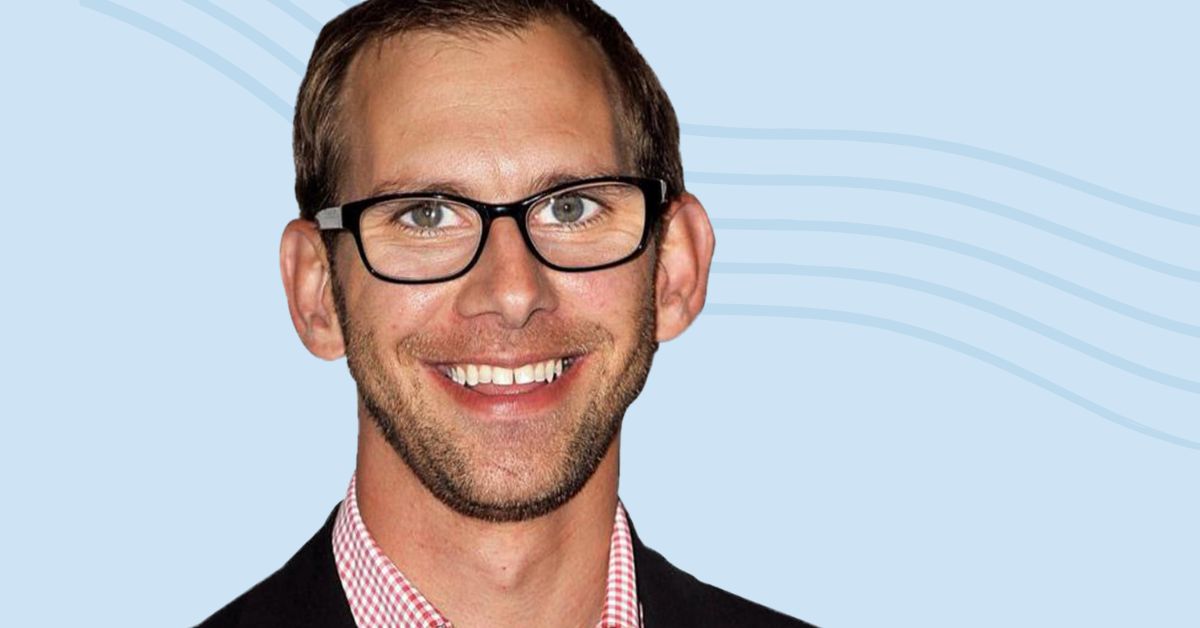To celebrate Disability Pride Month, our team recently sat down with Disability and Organ Advocate and Joshin advisor Michael Kutcher to talk about his story, Disability Pride, and how people can become better allies to the disability community.
Hi Michael! Happy Disability Pride Month! Let’s start our conversation today with your disability origin story.
Michael Kutcher: I developed Cerebral palsy from birth, but I wasn’t diagnosed until around the age of three. My mom saw some developmental differences going on between my twin and me. It’s very easy to diagnose someone when you’ve got a twin to compare to. After countless doctor’s appointments and consultations, my mom demanded some sort of answers and finally got a diagnosis of CP. And in 1978, you had no idea what that was. Today, we’ve got a lot more research and information people can lean on, but back then, you had no guidance to go by other than basic home therapeutic physical therapy. My mom was able to access some resources from our school system and area educational development centers. They helped guide her through the process and get resources for me, such as speech and physical therapy.
What’s one moment that changed how you understand your disability?
Michael Kutcher: There are a couple. The first is from elementary school. My mother was a teacher’s assistant working with children with disabilities. I remember going to a picnic, and we were at a park playing with her students. I was about the same age as the other kids, and I was playing with a little boy named Timmy, who had to wear braces and use crutches. On the way home in the car, I asked my mom, “Why does Timmy have to wear crutches and braces?” And she said, “Well, Timmy has Cerebral palsy, the same disability you have.” And I was like, “Huh? I have a disability?” I didn’t even realize it. It was after this conversation that I started finding out more about the different severities associated with it.
The other moment happened about 12 years ago when I met Bella, a young girl with Cerebral palsy. She had a different severity than I did, and she couldn’t physically speak. She was five years old at that time, and it just clicked with me. I was like, I can just sit around and not say anything, or instead, I can use my voice to stand up and advocate for people like her.
Fast forward all of these years, what does Disability Pride mean to you today?
Michael Kutcher: First and foremost, it means acceptance. We’re all looking to find our place in our world. And individuals with disabilities, it’s a larger community than what we know because of invisible or silent disabilities. And it’s not just acceptance of the world and the community around us, it’s acceptance of yourself. It’s about being proud of who you are. And yes, I may have some challenges I need to overcome, but don’t we all? I believe the world can learn from people with disabilities because we are all different, and we each bring something unique to the table. What would the world be like if we were all the same?
What’s your advice for people who want to become better allies and advocates for the disability community?
Michael Kutcher: You don’t need a platform. You don’t need privilege. You don’t need money. You don’t need anything. You can stand up for another individual and lend a helping hand. In my eyes, that’s being an advocate.
But what about changing your own perception? You don’t even have to involve other people in that. Take a moment and sit down by yourself and think, “What are my internal thoughts when I see a person with a disability?” And this goes far beyond disabilities. It can go to the LGBTQ+ community, or racism – it can go wherever you want. We all have our internal thoughts, and I think in this day and age, we really need to look inward and how we perceive things in our lives and perceive other people in our lives.
And finally, make a friend. Make a friend who is an individual with a disability, and get to know them. Get to know what challenges they face. They’re going to appreciate you taking the time to learn more about their life. I have plenty of people who become my friend and learn about my disability later on, and they want to know more. They’ll ask questions, and I’ll explain how I have limited mobility in my right hand. I think the best way to be a champion is to understand the world that someone lives. See life through someone else’s lens.
Thank you again for sharing your story and advocacy with us today. Last question, what is one thing you want the world to know about disability?
Michael Kutcher: We’re all different. We all have different challenges. Some are more invisible than others, but it doesn’t mean that we don’t have feelings or can’t achieve success. It just means that we do things differently. And I would rather be in a world where we do things differently than be in a world where everyone’s the same. Because it makes the world complete.
